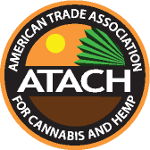Nevada
1. Overview of Cannabis and Hemp Laws
Cannabis:
- Recreational Use: Legalized in 2016 via Ballot Question 2, allowing adults 21 and over to possess up to 1 ounce of cannabis. Retail sales began in July 2017, regulated under Nevada Revised Statutes Annotated § 453D.
- Medical Use: Legalized in 2000 with Ballot Question 9, which amended the state constitution to allow medical cannabis. In 2013, Senate Bill 374 permitted licensed dispensaries to serve medical patients, governed under Nevada Revised Statutes Annotated §§ 453A.300 to 453A.740.
Hemp Intoxicants and Synthetic THC:
Nevada integrates hemp-derived intoxicants, including delta-8 THC, within its cannabis regulatory framework, subjecting them to the same standards as cannabis products.
2. Historical Context
- 1931: Nevada enacts state-level cannabis prohibition.
- 2000: Ballot Question 9 passes, amending the state constitution to legalize medical cannabis.
- 2013: SB 374 is signed, enabling the establishment of licensed medical dispensaries.
- 2016: Recreational cannabis is legalized by Ballot Question 2.
- 2017: Recreational sales begin, regulated initially by the Department of Taxation, later transitioning to the Cannabis Compliance Board.
3. Recreational Cannabis Laws
- Possession Limits: Adults 21 and older may possess up to 1 ounce of cannabis or 1/8 ounce of concentrate.
- Cultivation: Home cultivation is allowed for individuals living 25 miles or more from a dispensary, with a limit of six plants per person, up to 12 plants per household.
- Public Use: Public consumption is prohibited and limited to private properties.
- Sale and Retail: Dispensaries licensed by the Cannabis Compliance Board may sell recreational cannabis, with purchase limits of 1 ounce per visit.
4. Medical Cannabis Laws
- Patient Eligibility: Qualifying conditions include chronic pain, cancer, HIV/AIDS, glaucoma, PTSD, and other severe illnesses as certified by a physician.
- Product Access: Medical cannabis products include flower, concentrates, and infused edibles, though smoking in public and driving under the influence are prohibited.
- Program Details: Patients must register with the state’s Medical Marijuana Program, with purchase limits set at 2.5 ounces every two weeks.
5. Hemp-Derived Intoxicants
- Regulatory Status: Nevada regulates hemp intoxicants like delta-8 THC within its cannabis framework, subjecting them to similar standards.
- Testing and Labeling Requirements: All intoxicating hemp products must meet state standards for potency, contaminants, and labeling, which must include THC content.
- Age and Retail Restrictions: Sales of hemp intoxicants are restricted to adults 21 and older, permitted only through licensed dispensaries.
6. Criminal Penalties for Cannabis Offenses
- Possession: Possessing more than 1 ounce is a misdemeanor, with penalties including fines or mandatory diversion programs.
- Sale and Distribution: Unlicensed sales are felonies, with enhanced penalties for sales to minors or in proximity to schools.
- Trafficking and Cultivation: Large-scale trafficking and cultivation beyond household plant limits are felonies, with severe penalties for substantial quantities.
7. Social Equity Programs
- Eligibility Criteria: Nevada’s social equity program prioritizes applicants from communities disproportionately affected by cannabis prohibition.
- Licensing Benefits: Social equity applicants receive priority processing and reduced fees.
- Additional Support: The state provides business training programs and resources to assist social equity applicants in establishing cannabis businesses.
8. Business Types and Operations
- Licensing Types: Nevada issues licenses for various operations, including cultivation, retail, production, distribution, and testing.
Regulatory Requirements: Licensed businesses must comply with strict standards, covering security, inventory tracking, employee training, and compliance monitoring.
